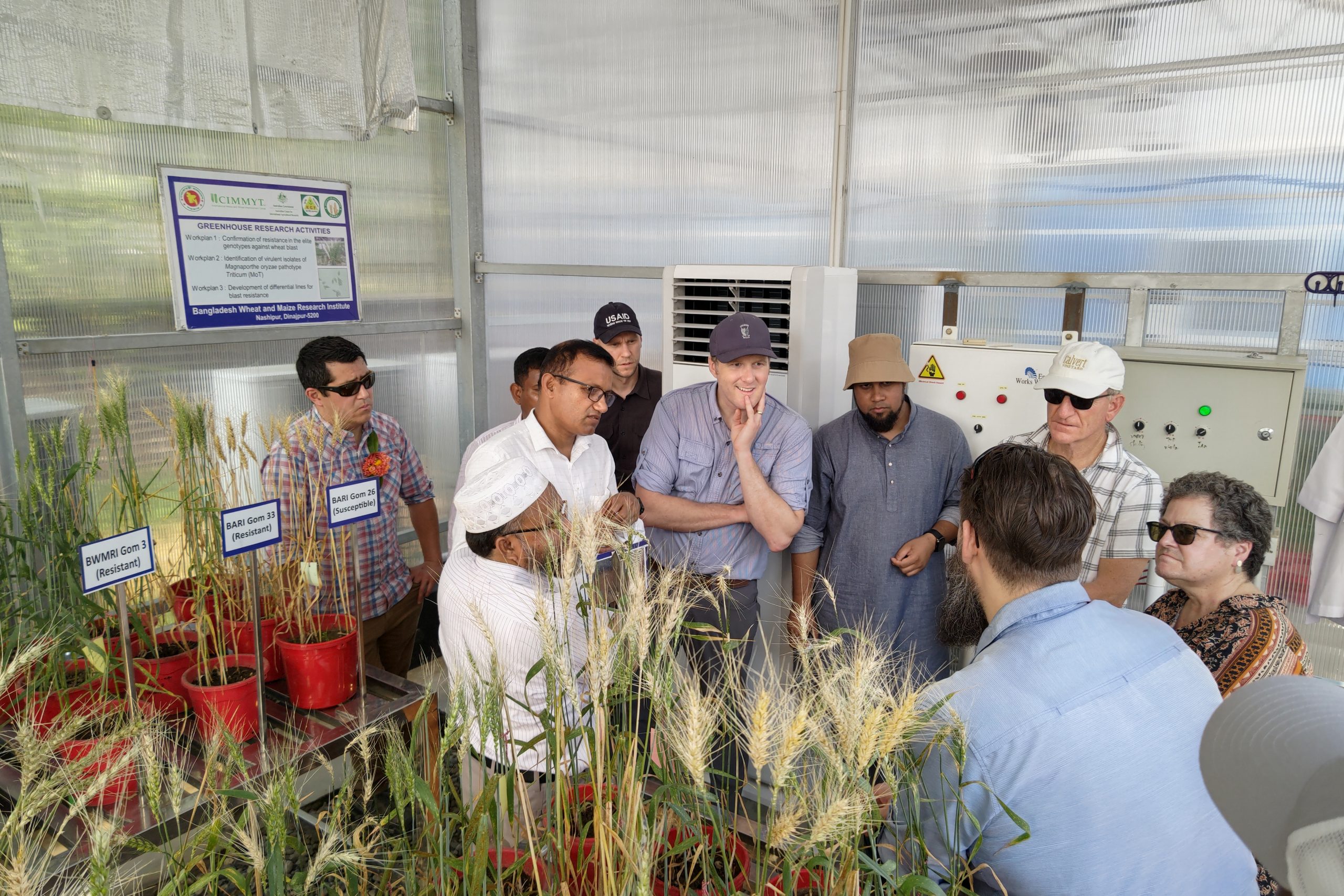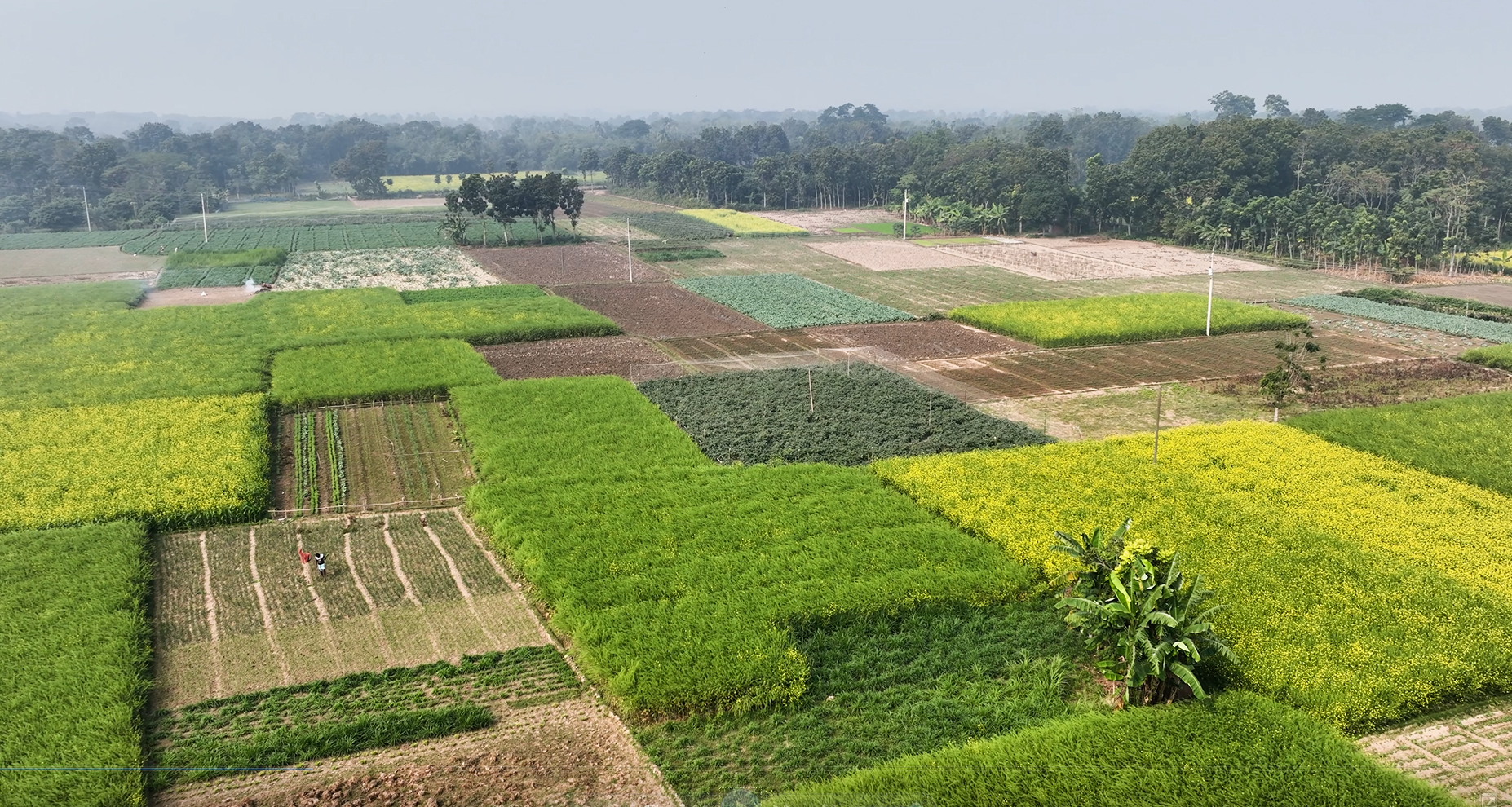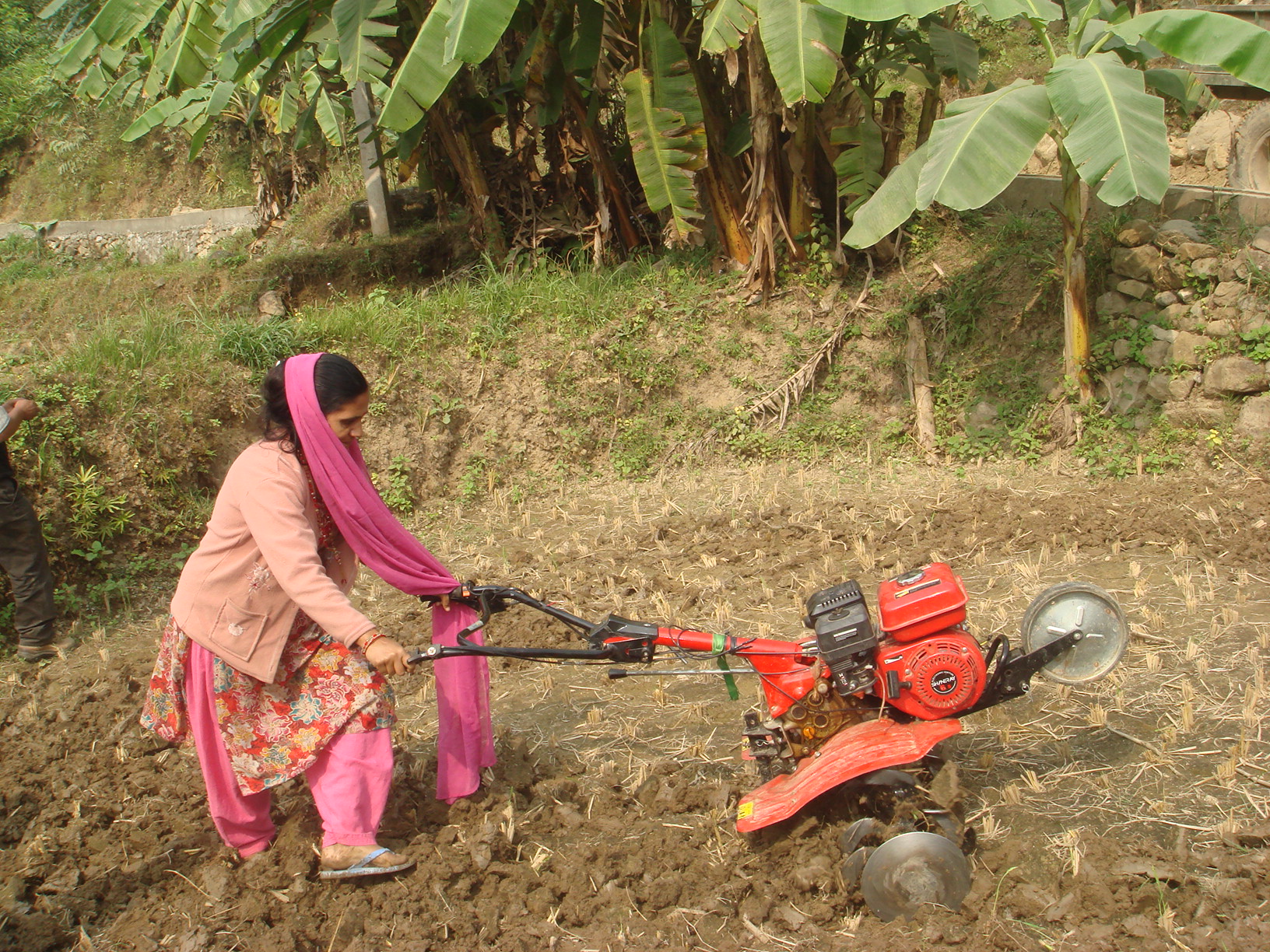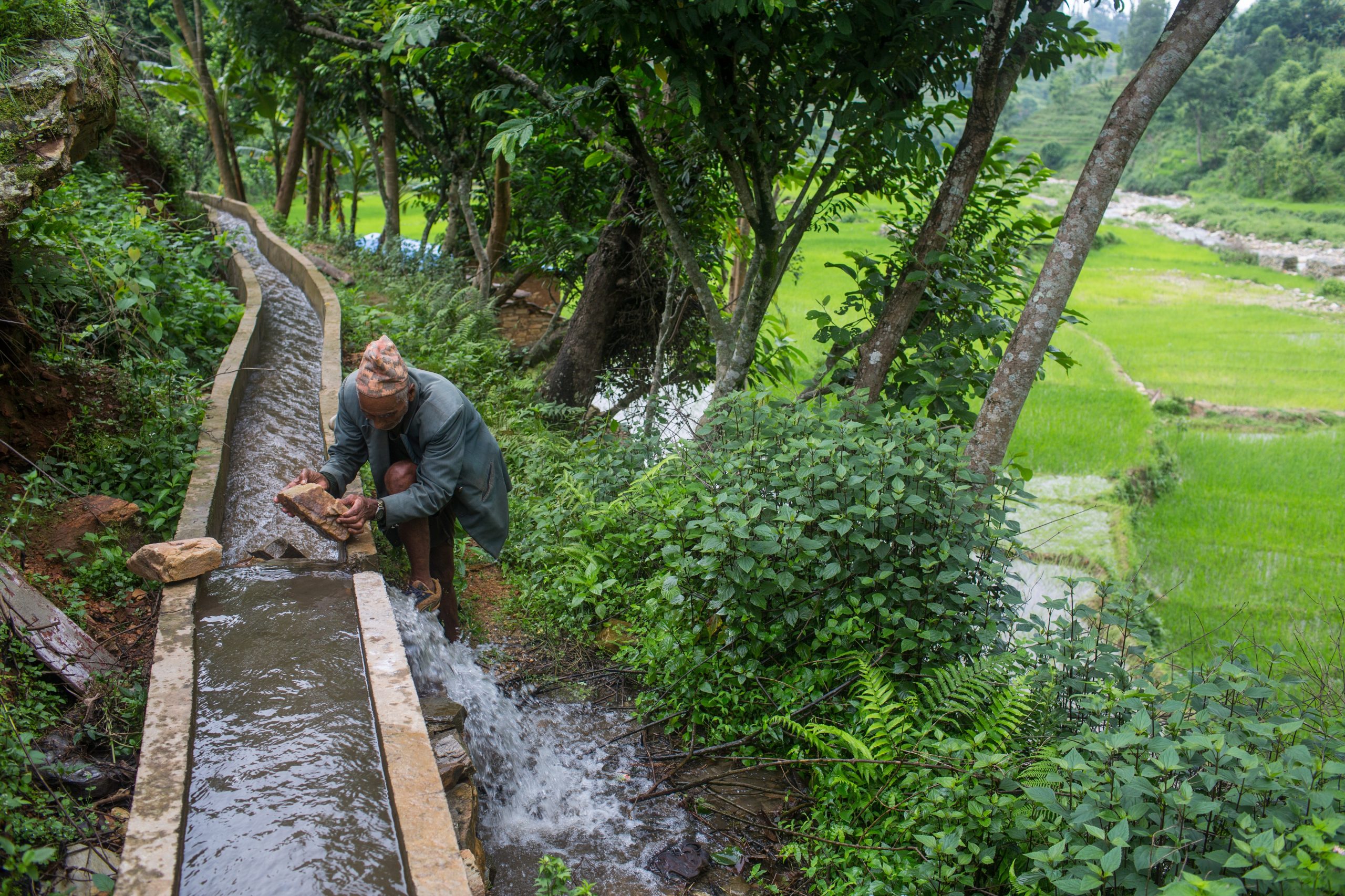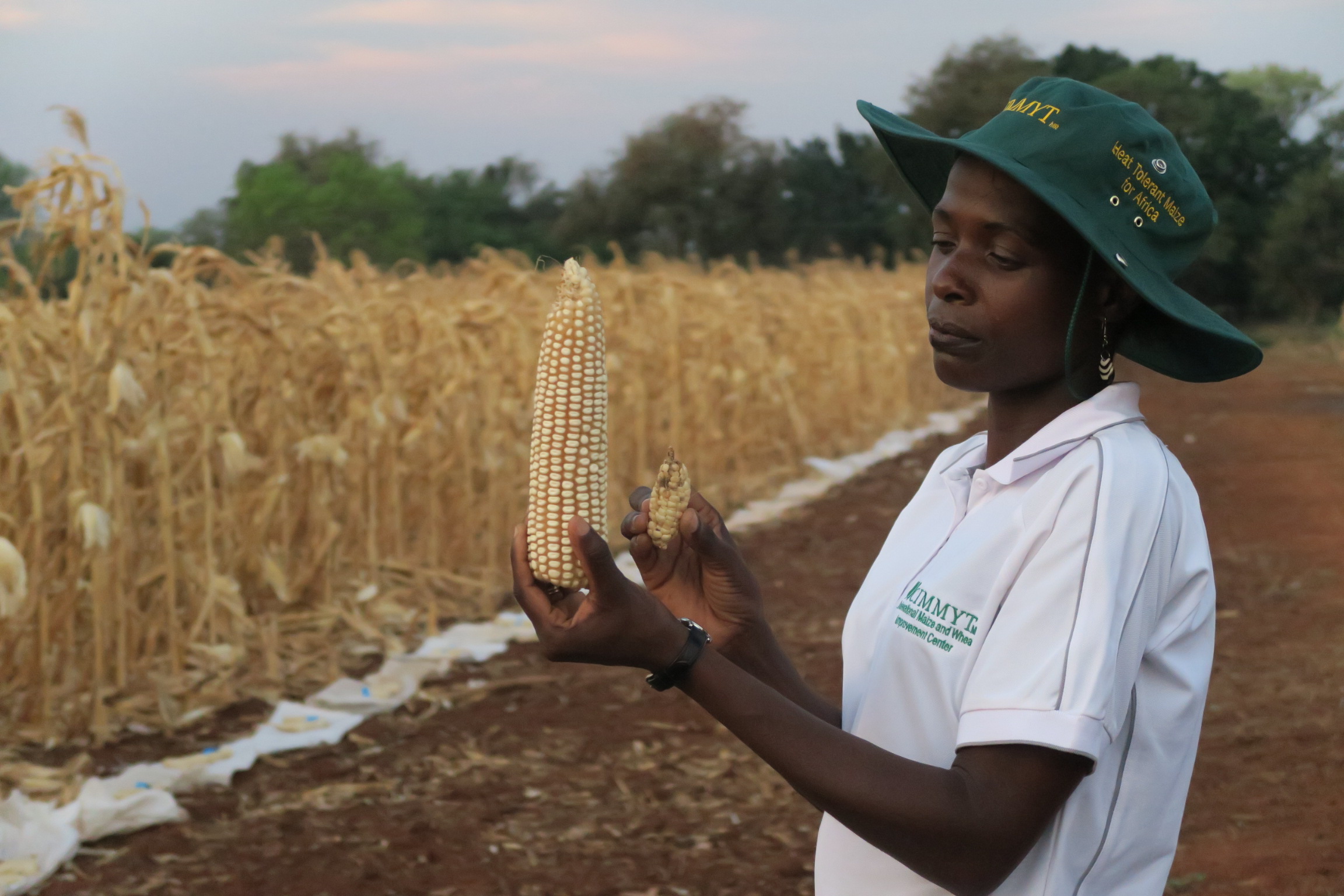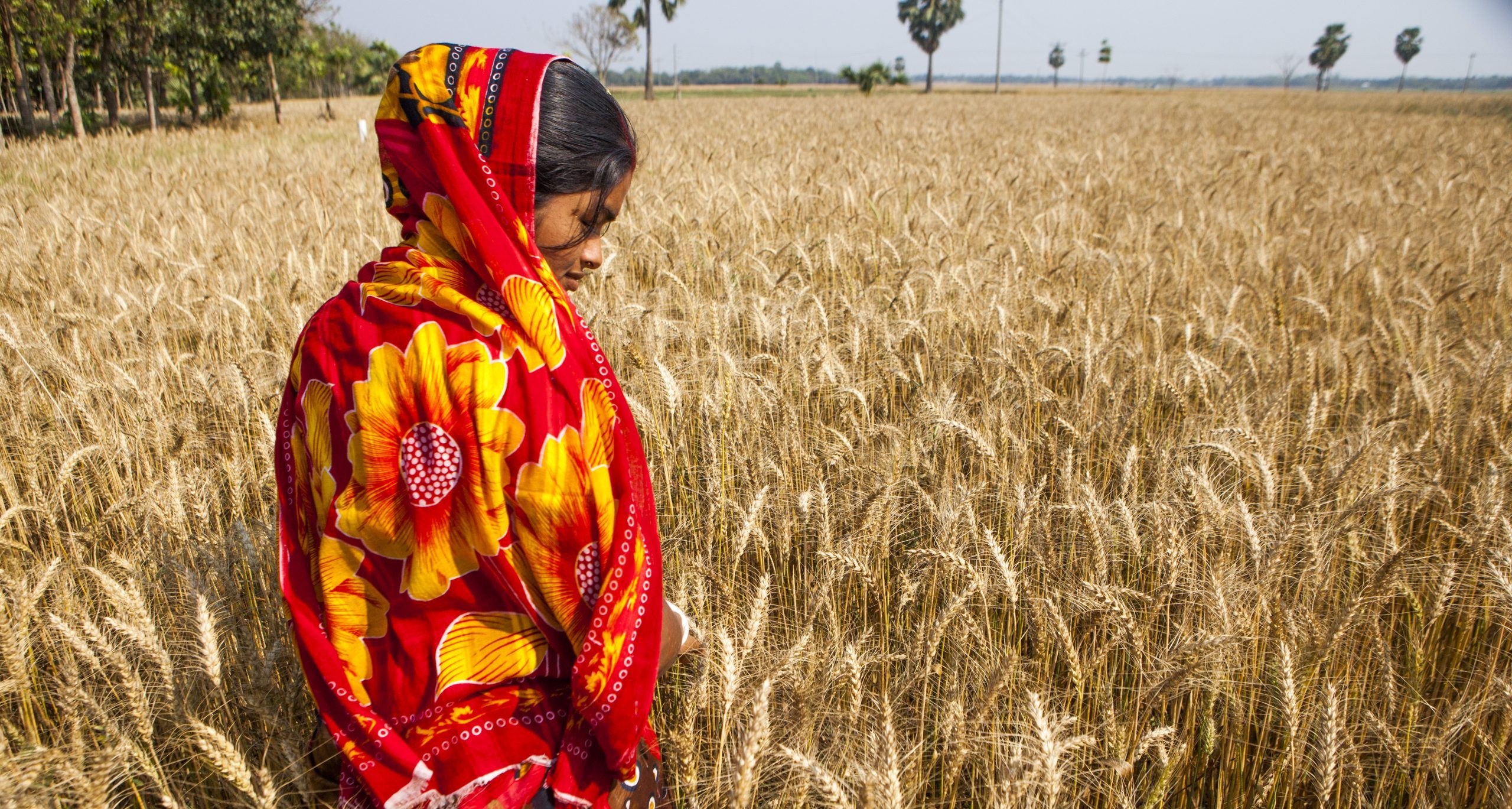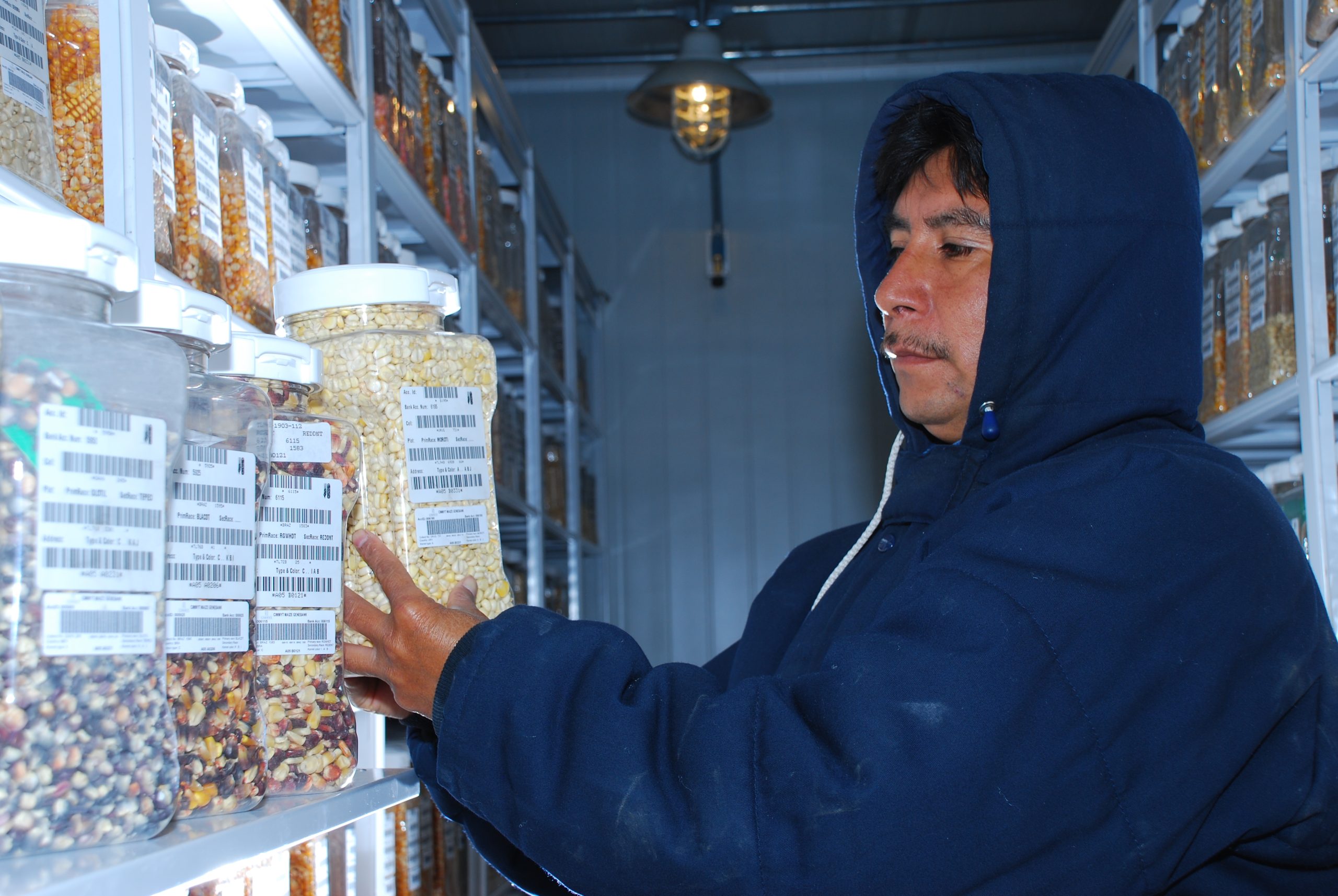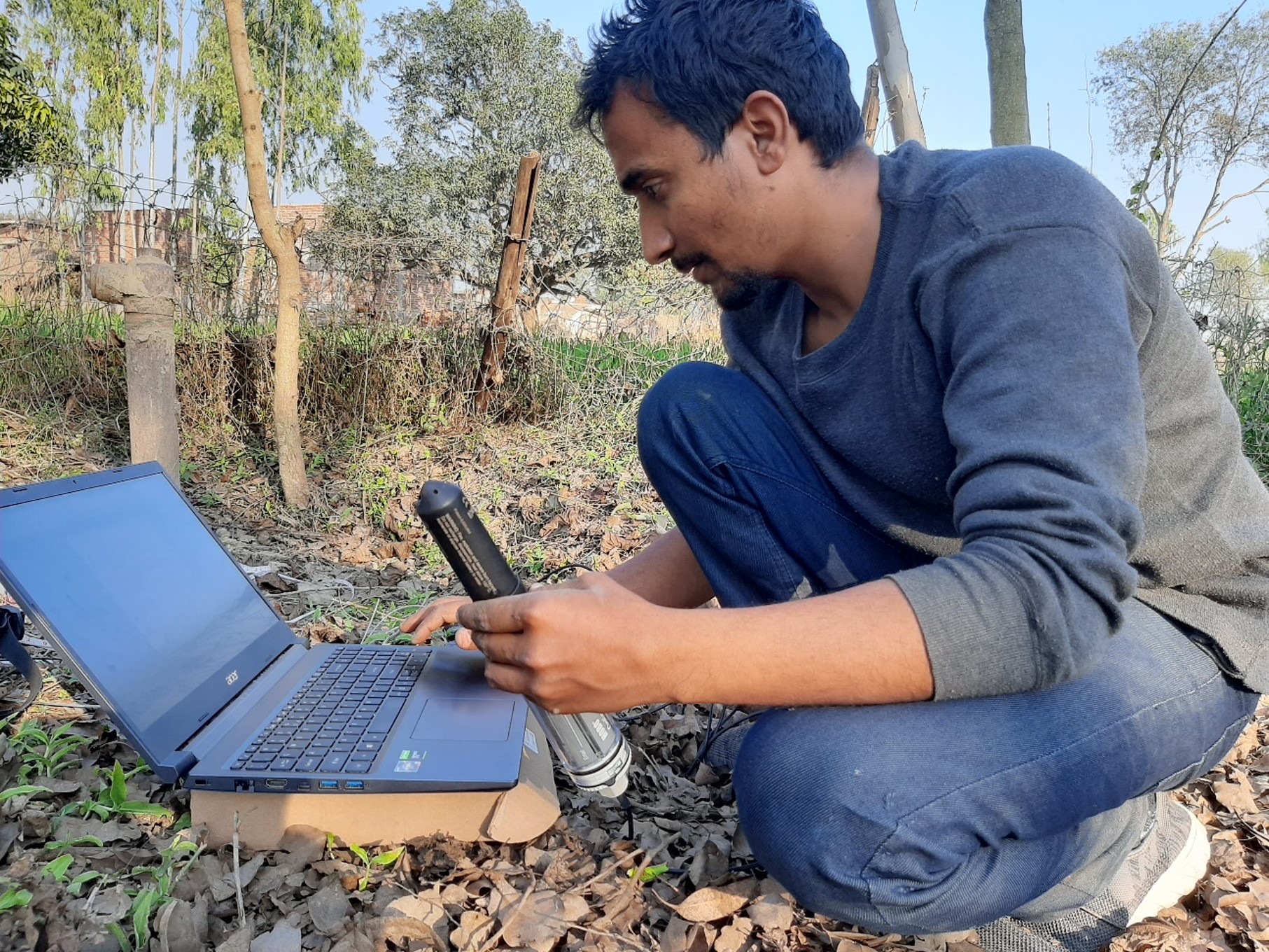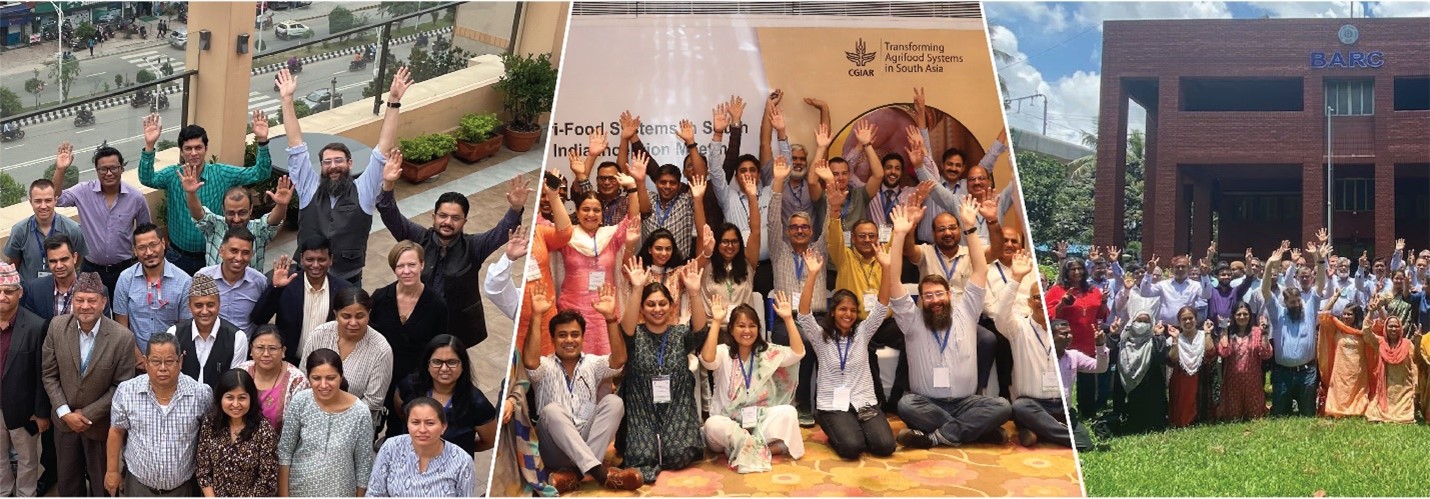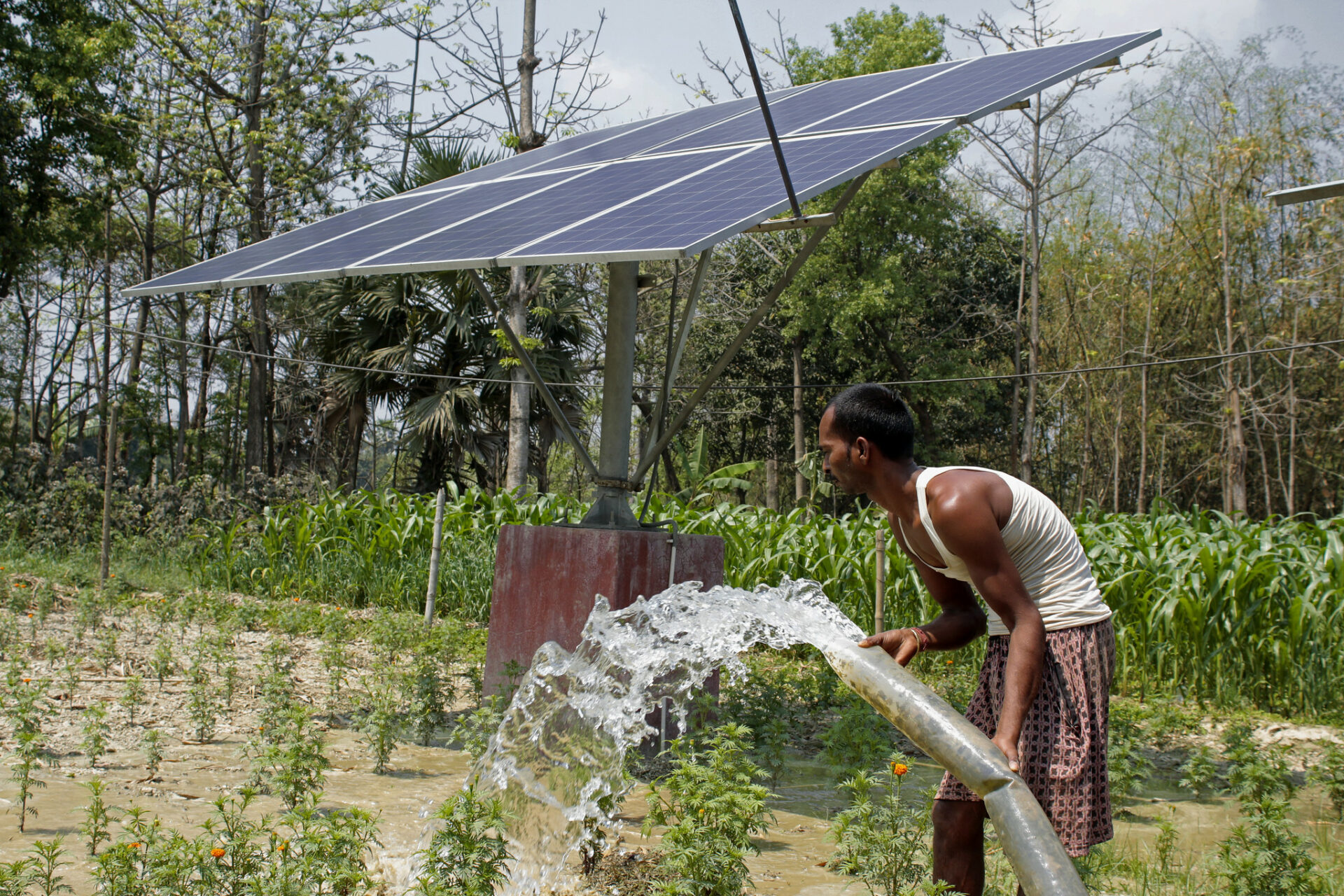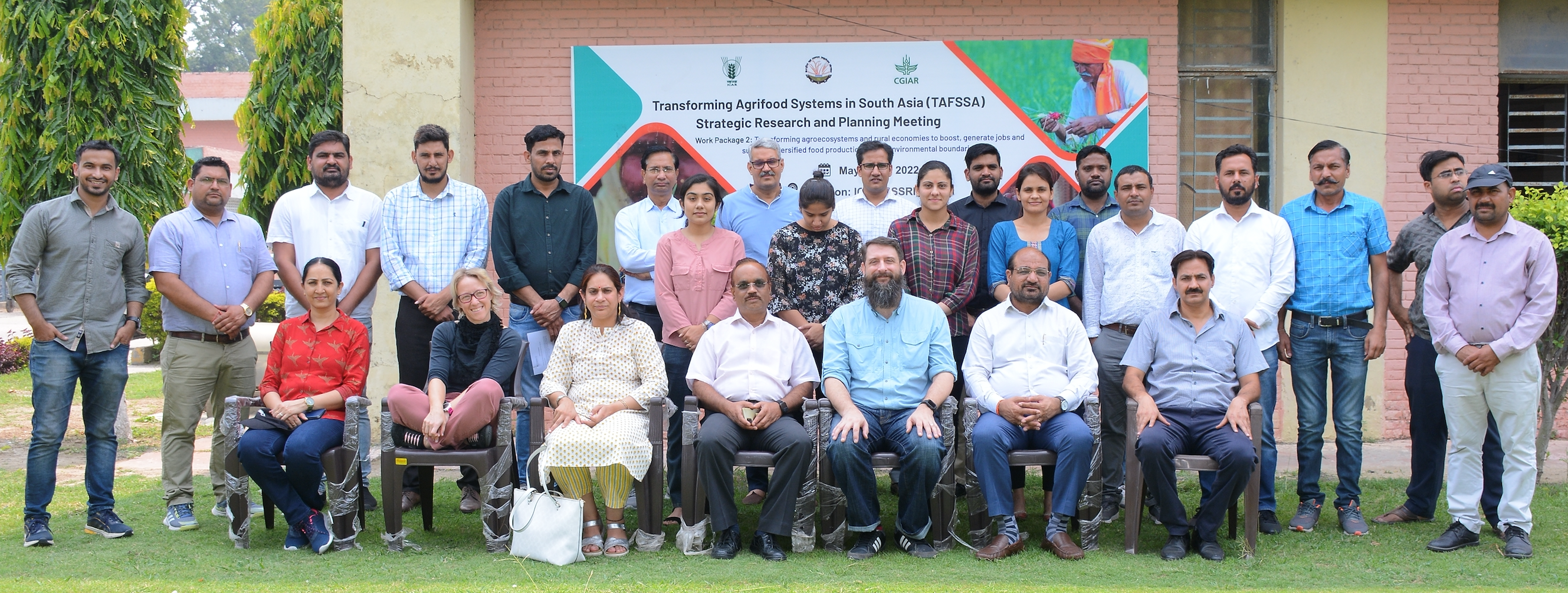Working across South Asia, the Transforming Agrifood Systems in South Asia (TAFSSA) Initiative will deliver a coordinated program of research and engagement across the food production to consumption continuum to improve equitable access to sustainable healthy diets, improve farmer livelihoods and resilience, and conserve land, air, and groundwater resources.
TAFSSA aims to propel evidence into impact through engagement with public and private partners across the production-to-consumption continuum, to achieve productive, environmentally-sound South Asian agrifood systems that support equitable access to sustainable healthy diets.
This objective will be achieved through:
- Facilitating agrifood systems transformation through inclusive learning platforms, public data systems and partnerships: building new and enhancing existing learning platforms; improving the evidence base; increasing quality data availability and accessibility; and demonstrating the value of integrated agrifood systems datasets.
- Transforming agroecosystems and rural economies to boost income, generate jobs and support diversified food production within environmental boundaries: generating linkages between farmers, landscapes and markets to diversify agricultural production, increase farmers’ incomes and foster rural entrepreneurship within environmental boundaries.
- Improving access to and affordability of sustainably produced healthy foods through evidence and actions across the food system: creating favorable environments for diversification; improving access to inputs for and marketability of sustainable nutritious food; and improving access to healthy food for the poor through changes in food retail environments.
- Understanding behavioral and structural determinants of sustainable healthy diets: studying dietary practices of food consumers; identifying determinants of food choices; and testing innovations to support consumption of sustainable healthy diets.
- Building resilience and mitigating environmental impact: examining how South Asia can produce healthy diets within an environmentally safe and socially equitable operating space, and in consideration of ongoing climate change and farmers’ resilience to shocks.
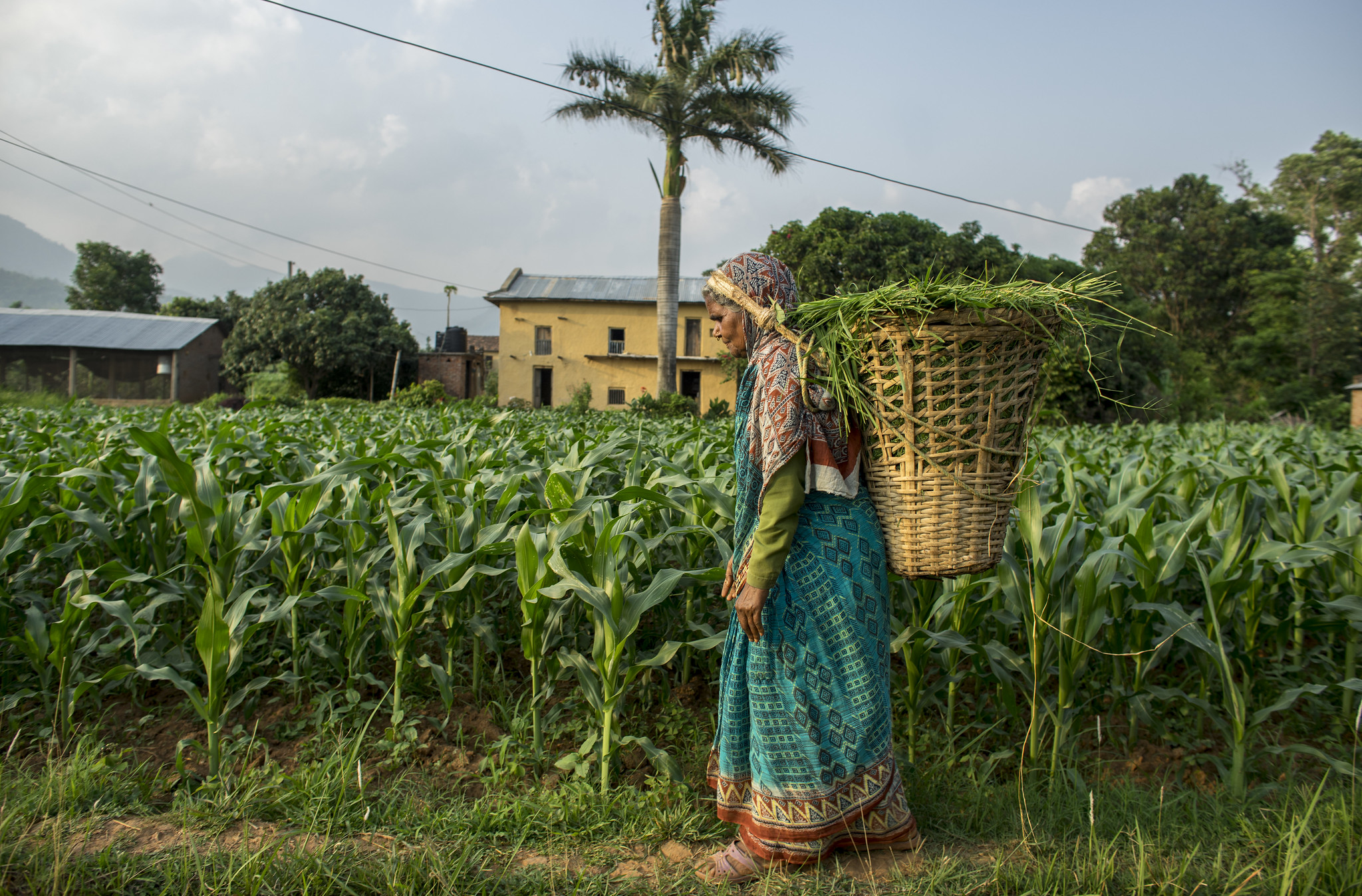

 Climate adaptation and mitigation
Climate adaptation and mitigation 